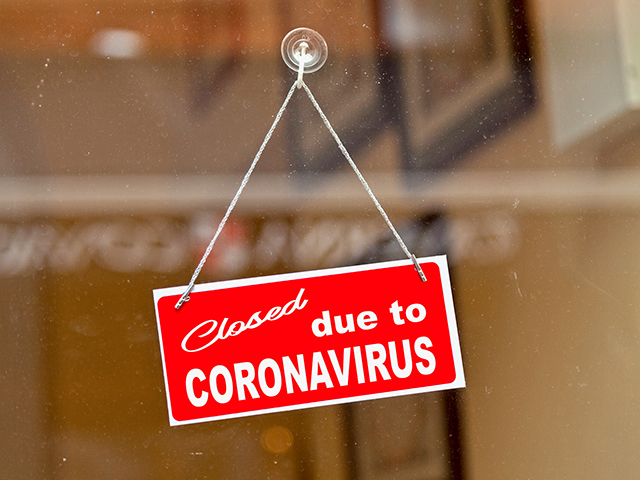Best Blog of the Week
An Urban's Rural View
The debate over reopening is mutating. It's no longer about whether. It's about when (now? in a few days? weeks?) and how (which activities in which phases?) Second waves of the novel coronavirus may bring more deaths so in its next mutation the debate will be about how big an increase is acceptable.
Yet the debate overlooks something fundamental: What will matter most as reopening proceeds is not what the governors do but what the governed do -- how citizens and corporations react.
For just as the results were decidedly mixed when governors ordered self-quarantining, social distancing, mask wearing and hand washing, they will be mixed when governors allow shopping in stores, eating out, and returning to school.
As "mixed" suggests, different people will behave differently. Some will remain risk-averse. Others won't. The strength and pace of the economic recovery will hinge on how many are in each camp. Nobody can predict that with certainty.
Although the coronavirus, like practically everything, has become politically polarized, there's more agreement than cable news lets on. For example, one poll shows 70% or greater support for re-imposing restrictions if second waves materialize. (https://www.wusa9.com/…) There's also more individual variation than many imagine. I know conservatives who are wearing masks and liberals who think governments have overreacted.
Therefore, in trying to determine how the governed will behave it's simplistic to predict based on people's politics.
P[L1] D[0x0] M[300x250] OOP[F] ADUNIT[] T[]
Some analysts have attempted a class analysis instead. Conservative New York Times columnist Bret Stephens distinguishes between the "remote" and the "exposed." (https://www.nytimes.com/…)
The exposed are those who must be physically present to do their jobs and are, on average, less well-educated and well-paid. They're among the human beings behind the frightening economic statistics. Unemployment in the double-digits. Retail sales collapsing. A decade's worth of job growth wiped out. Nearly 37 million filing for unemployment benefits.
The remote are those who can easily self-quarantine. They're retired, for example, or hold the 37% of the nation's jobs that a study found can be done from home. They're not suffering the way the exposed are, though some are feeling stressed.
The exposed, Stephens argues, favor ending the lockdowns now while the remote favor prolonging them. Maybe. But once lockdowns end -- and they are ending in many places now and will end in more soon -- the analysis will get more complicated.
For it's one thing to favor reopening restaurants and gyms and hair salons. It's another to avail yourself of them. Just as politics isn't a perfect predictor, neat class lines won't divide the eager from the cautious.
Some of the remote will go out and party. Some of the exposed will be reluctant to return to work or cram into crowded bars. Employers, including meat-packing plants, are finding some workers fearful.
Reopening without vaccines, cures or sufficient testing and tracking will leave people uneasy. It will be up to businesses to make employees and customers feel safer.
McDonald's has given its franchisees a 59-page guide to reopening dining rooms. The to-dos include cleaning bathrooms every 30 minutes and closing soda fountains; having employees wear masks and gloves; checking employees' temperatures; and installing certain equipment. (https://www.wsj.com/…)
Some hospitals have kept their staffs relatively safe despite treating tens of thousands of COVID-19 patients. One is Mass General Brigham in Boston. According to Atul Gawande, a doctor at the hospital who also writes for the New Yorker, the hospital has relied on hygiene, distancing, screening and masks, with an emphasis on screening:
"Any time I want to enter a hospital building, I have to go to a Web site that I've bookmarked on my phone, log in with my employee identification, and confirm that I have not developed a single sign of the disease -- a new fever, cough, sore throat, shortness of breath, loss of taste or smell, or even just nasal congestion or a runny nose." (https://www.newyorker.com/…)
While employees could lie and work sick, more than 11,000 through the first week of May had reported symptoms and stayed home. "Fourteen hundred of them tested positive for SARS-CoV-2 and avoided infecting patients and colleagues." (Those testing positive tended to live in parts of Boston with disproportionate numbers of cases, suggesting many weren't infected at work.)
McDonald's, Mass General Brigham and other organizations are groping for protocols to assure customers and employees they're safe. COVID-19 isn't a hoax, but the country can't remain locked down forever. Until there's a vaccine, economic recovery must straddle a middle ground between strict lockdown and anything goes.
Urban Lehner can be reached at urbanize@gmail.com
(c) Copyright 2020 DTN, LLC. All rights reserved.




